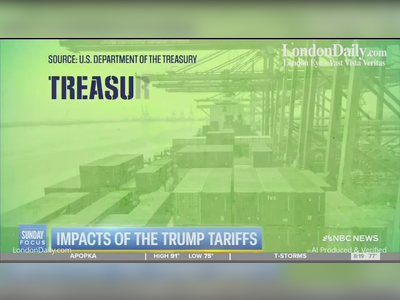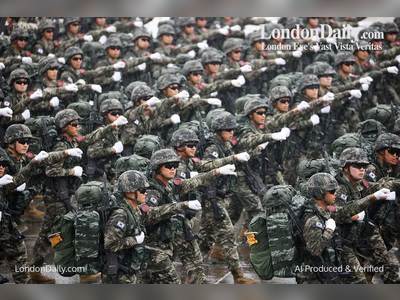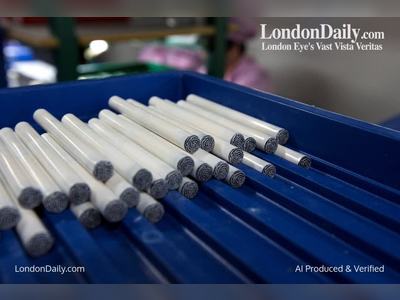China Accuses: Nvidia Chips Are U.S. Espionage Tools
A Chinese state media post alleges Nvidia’s H20 AI chips, approved for sale in China by the U.S., contain a remote-access 'backdoor'; Nvidia denies the claim, calling it baseless and warning against such practices.
A post published by Chinese state media has accused Nvidia’s H20 AI chips—approved for sale in China by the U.S. government—of containing a 'backdoor' enabling remote control.
According to the report, the chips are not technologically advanced and are not environmentally friendly.
Nvidia has denied the allegations.
The H20 chips, a variant of Nvidia’s more advanced H100 processors, were cleared by the U.S. for sale in the Chinese market, but authorities in Beijing have expressed concerns about potential embedded backdoors granting the U.S. access.
The post, shared on the WeChat account 'Yuyuan Tantian,' affiliated with China’s state broadcaster CCTV, claimed the chips could be remotely seized or shut down.
It further stated the chips are neither technologically advanced nor eco-friendly, adding: “When a certain type of chip is not environmentally friendly, not advanced, and not safe, as consumers, we can certainly choose not to buy it.”
This is the second such publication in Chinese state media.
Earlier this month, the People’s Daily ran a commentary asserting that Nvidia must provide 'convincing security evidence' to address Chinese users’ security concerns and restore market trust.
Both reports add uncertainty to Nvidia’s already complex relationship with its second-largest market.
Just ten days earlier, on July 31, China’s cybersecurity regulator summoned Nvidia representatives to explain whether the chips contained security risks or a backdoor.
The concerns may be linked to U.S. legislative proposals to incorporate location verification systems in export-bound chips, though some analysts suggest Beijing’s moves could be a counter-response to recurring U.S. warnings about Chinese technology.
Nvidia, in a company statement, firmly denied that its processors include backdoors or kill switches.
It also criticized U.S. initiatives to embed such components in American chips, arguing they would be 'a gift to hackers and hostile actors,' undermine global digital infrastructure, and erode trust in U.S. technology.
'The law wisely requires companies to fix vulnerabilities, not create them,' the company stated, calling such measures an overreaction that would irreversibly harm U.S. economic and security interests.
The H20 chips are a less powerful version of Nvidia’s flagship H100 AI processors, approved for sale in China after several policy shifts.
In late 2023, the U.S. imposed certain export restrictions on advanced AI chips to China, but in April this year, President Trump banned their sale entirely amid escalating trade tensions.
Nvidia CEO Jensen Huang lobbied against the ban, warning it would spur Chinese developers to advance rapidly, push them toward domestic alternatives, hand the market to Huawei and other local competitors, and erode U.S. technological leadership.
Following this lobbying, Trump eased the blanket ban in July, allowing Nvidia to sell the H20—a relatively weaker AI chip but still capable of supporting significant development.
In certain language model inference tasks, it can even outperform the company’s H100 and H200 processors.
For Nvidia, the lifting of the ban carries major financial significance.
After the original prohibition, the company was forced to write off $4.5 billion in inventory of unsold H20 chips.
Following the reversal, Nvidia ordered 300 units from manufacturer TSMC, underscoring the chip’s relevance to Chinese developers, research institutes, and universities, even in its reduced-capability form.
According to the report, the chips are not technologically advanced and are not environmentally friendly.
Nvidia has denied the allegations.
The H20 chips, a variant of Nvidia’s more advanced H100 processors, were cleared by the U.S. for sale in the Chinese market, but authorities in Beijing have expressed concerns about potential embedded backdoors granting the U.S. access.
The post, shared on the WeChat account 'Yuyuan Tantian,' affiliated with China’s state broadcaster CCTV, claimed the chips could be remotely seized or shut down.
It further stated the chips are neither technologically advanced nor eco-friendly, adding: “When a certain type of chip is not environmentally friendly, not advanced, and not safe, as consumers, we can certainly choose not to buy it.”
This is the second such publication in Chinese state media.
Earlier this month, the People’s Daily ran a commentary asserting that Nvidia must provide 'convincing security evidence' to address Chinese users’ security concerns and restore market trust.
Both reports add uncertainty to Nvidia’s already complex relationship with its second-largest market.
Just ten days earlier, on July 31, China’s cybersecurity regulator summoned Nvidia representatives to explain whether the chips contained security risks or a backdoor.
The concerns may be linked to U.S. legislative proposals to incorporate location verification systems in export-bound chips, though some analysts suggest Beijing’s moves could be a counter-response to recurring U.S. warnings about Chinese technology.
Nvidia, in a company statement, firmly denied that its processors include backdoors or kill switches.
It also criticized U.S. initiatives to embed such components in American chips, arguing they would be 'a gift to hackers and hostile actors,' undermine global digital infrastructure, and erode trust in U.S. technology.
'The law wisely requires companies to fix vulnerabilities, not create them,' the company stated, calling such measures an overreaction that would irreversibly harm U.S. economic and security interests.
The H20 chips are a less powerful version of Nvidia’s flagship H100 AI processors, approved for sale in China after several policy shifts.
In late 2023, the U.S. imposed certain export restrictions on advanced AI chips to China, but in April this year, President Trump banned their sale entirely amid escalating trade tensions.
Nvidia CEO Jensen Huang lobbied against the ban, warning it would spur Chinese developers to advance rapidly, push them toward domestic alternatives, hand the market to Huawei and other local competitors, and erode U.S. technological leadership.
Following this lobbying, Trump eased the blanket ban in July, allowing Nvidia to sell the H20—a relatively weaker AI chip but still capable of supporting significant development.
In certain language model inference tasks, it can even outperform the company’s H100 and H200 processors.
For Nvidia, the lifting of the ban carries major financial significance.
After the original prohibition, the company was forced to write off $4.5 billion in inventory of unsold H20 chips.
Following the reversal, Nvidia ordered 300 units from manufacturer TSMC, underscoring the chip’s relevance to Chinese developers, research institutes, and universities, even in its reduced-capability form.









